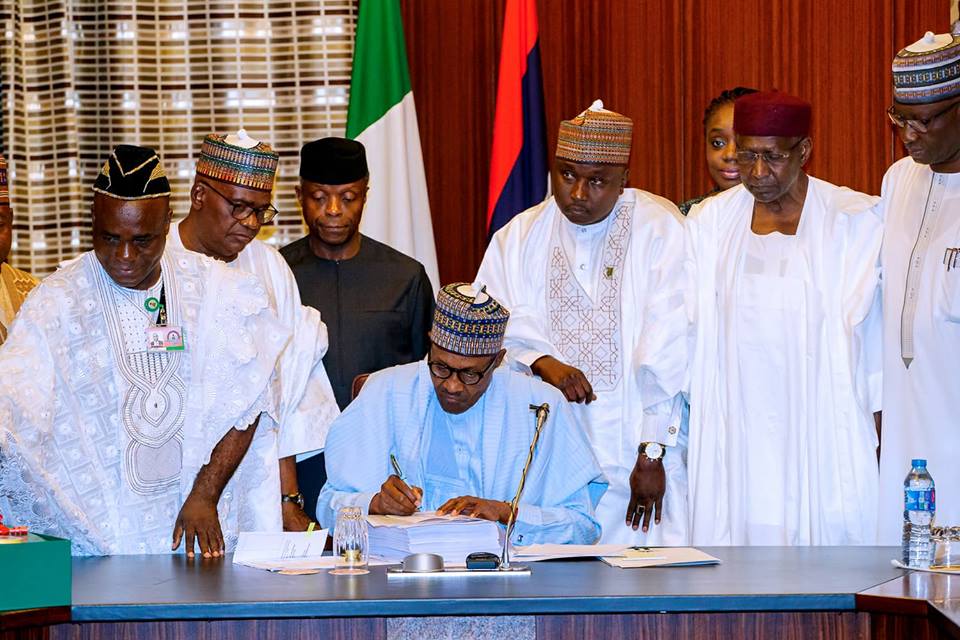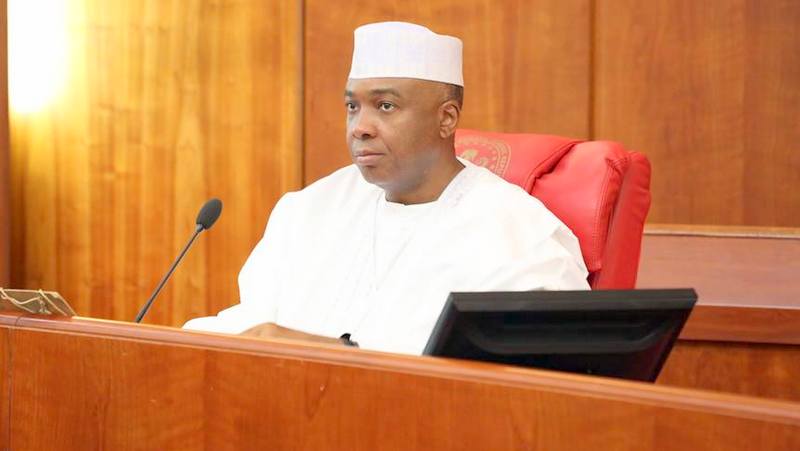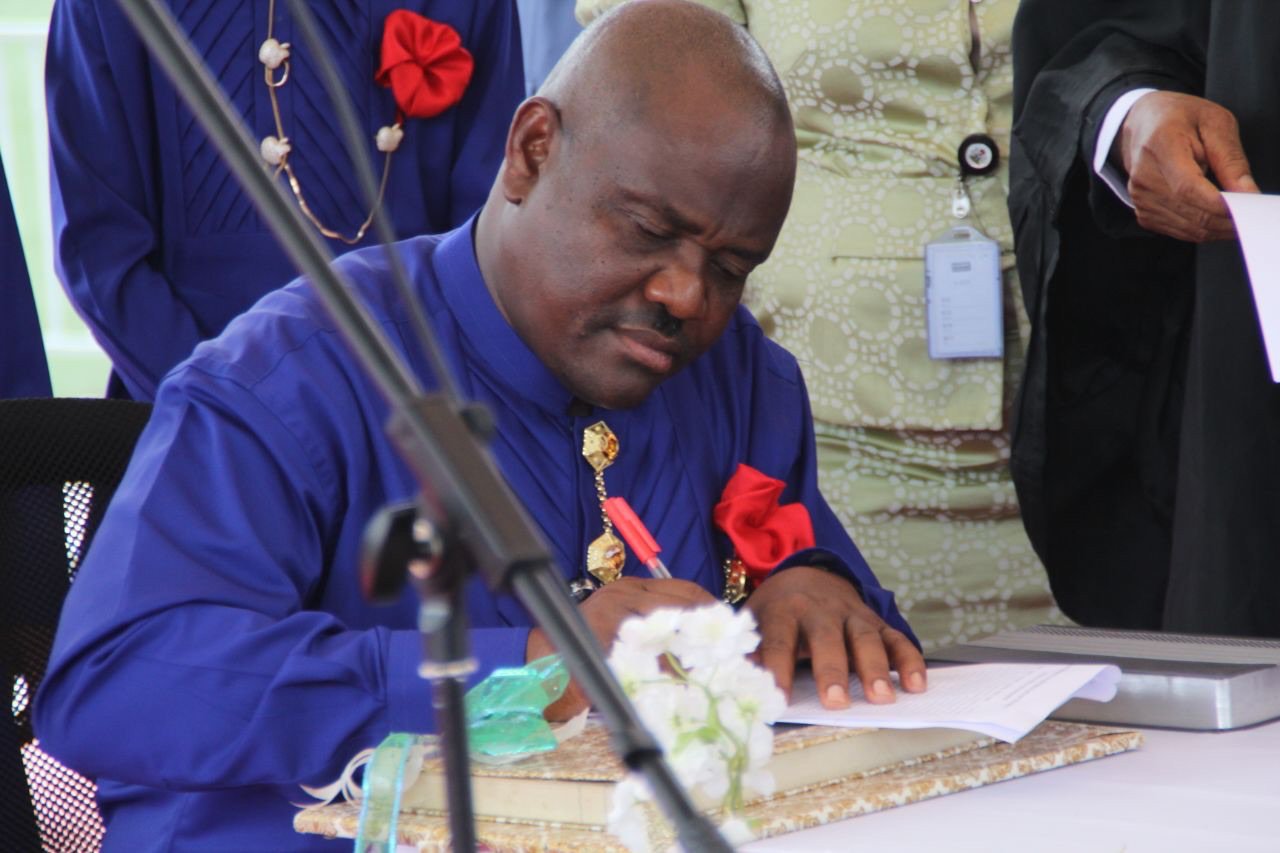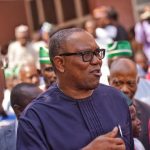General
CSOs Gather in Edo to Discuss FOI Implementation
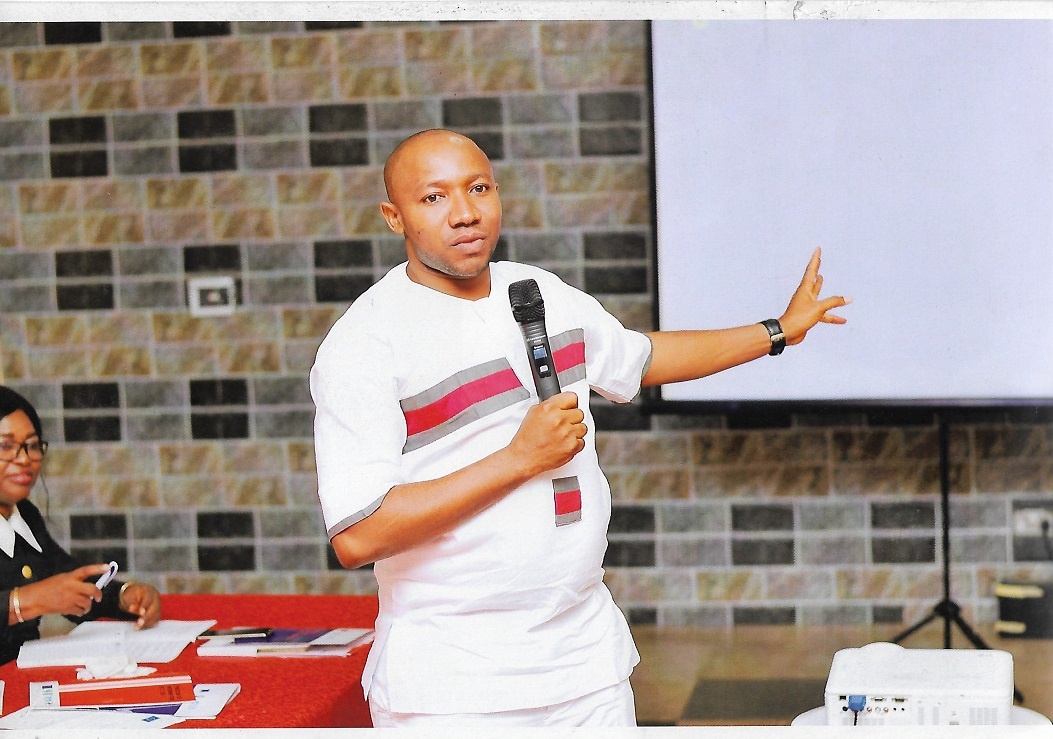
No fewer than 100 Civil Society Organisations are to meet in Benin, Edo State capital, Tuesday, to discuss the implementation of Nigeria’s Freedom of Information (FOI) Act in the state.
Chairman, Board of Governors, Freedom of Information Coalition, Nigeria (FOIC-N), Dr Walter Duru, disclosed this in a press release made available to newsmen, Sunday afternoon.
Mr Duru, who described the FOI Act as a powerful tool for the fight against corruption in Nigeria, expressed concern over low usage of the law by citizens in holding government at all levels accountable.
He explained that the Edo FOI meeting is supported by the European Union, through the Rule of Law and Anti-Corruption (ROLAC Programme) managed by the British Council.
“The Nigerian Freedom of Information (FOI) Act was signed into law on May 28 2011. The law was passed to enable the public to access certain government information, in order to ensure transparency and accountability.
“The FOI Act aims to make public records and information more freely available. It enables citizens to hold the government accountable in the event of misappropriation or public services failure. It also protects serving public officers against any adverse consequences from the unauthorized disclosure of certain kinds of official information.
“A recent survey by the Rule of Law and Anti-Corruption- ROLAC programme, in collaboration with the Freedom of Information Coalition, Nigeria- FOICN and Media Initiative against Injustice, Violence and Corruption-MIIVOC on the level of knowledge of the provisions and use of the FOI Act revealed that the gap in capacity is wide among citizens.
“It also shows that there is low compliance level with the provisions of the Act in Nigeria, especially, as it concerns some of the critical segments, such as Proactive Disclosure and Annual Compliance Reports,” he said.
“In an attempt to close the identified knowledge gap, the Rule of Law and Anti-Corruption Programme, in collaboration with the FOI Unit of the Federal Ministry of Justice (FMOJ), the Freedom of Information Coalition in Nigeria and the Media Initiative against Injustice, Violence and Corruption is holding a 2-day FOI Capacity Building Roundtable with representatives of non-state actors/CSOs, targeting the Media, Legal and mainstream Civil Society actors in Edo State, aimed at training participants on the provisions and use of the Act in the state,” he added.
Continuing, Mr Duru explained that state actors, particularly, Information Officers, Directors and Permanent Secretaries in Edo State will also be trained on the provisions and applications of the FOI Act, with a view to ensuring that stakeholders are on the same page.
“It is a comprehensive training package. Journalists, lawyers, community-based organisations, representatives of public institutions and other critical stakeholders shall be trained on FOI.
“The roundtable aims to build the capacity of citizens to have a working knowledge of the purpose and benefits of the FOI Act, as well as processes for dealing with requests as prescribed by the law.
“We are hopeful that at the end of the training, participants will have improved understanding on the application of the FOI Act.
“On the part of the state actors, in addition to the provisions and applications of the FOI Act, they will have better understanding of the duties of public institutions under the FOI Act,” he said.
He further called on Nigerians to take advantage of the Freedom of Information Act to participate in governance in the interest of the country.
General
BPP, NASENI Sign MoU on Speedy Implementation of Nigeria First Policy
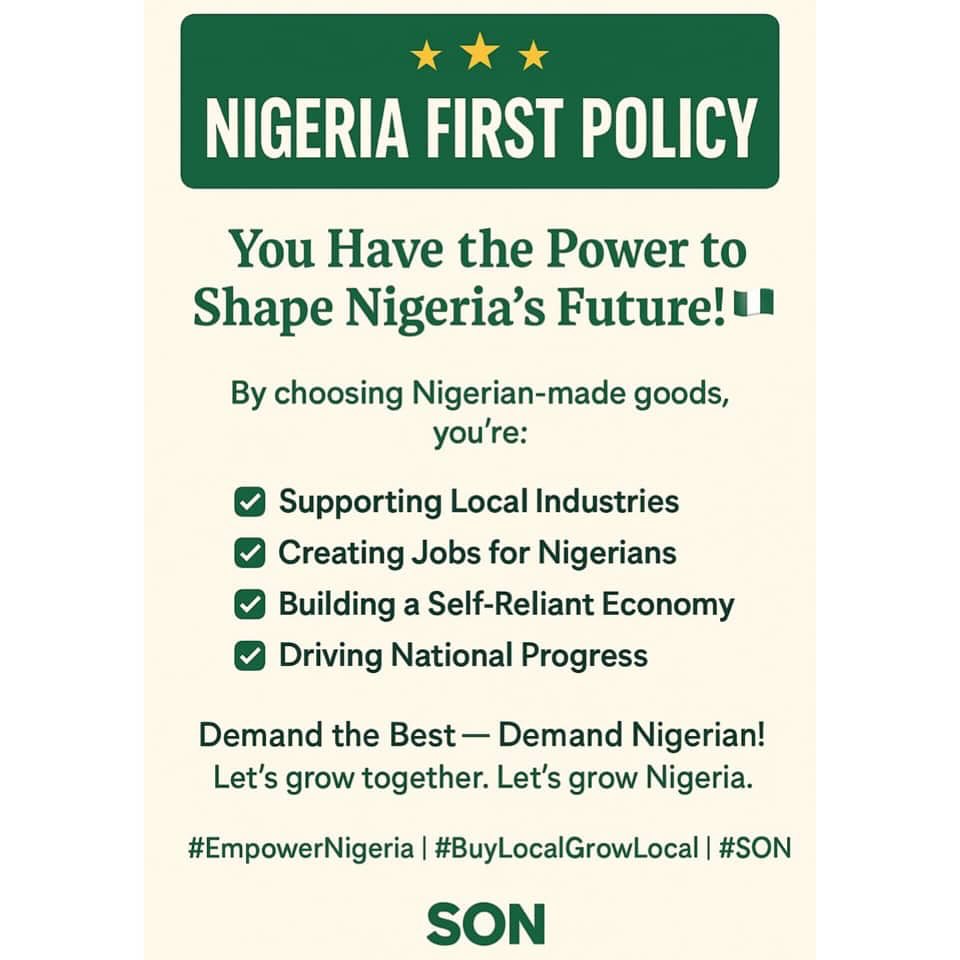
By Adedapo Adesanya
The Bureau of Public Procurement (BPP) and the National Agency for Science and Engineering Infrastructure (NASENI) have signed a Memorandum of Understanding (MoU) on the implementation of the Nigeria First Policy.
Speaking at the signing in Abuja on Monday, the Director-General of BPP, Mr Adebowale Adedokun, said the partnership would promote local manufacturing, technology, innovation and economic growth in Nigeria, noting that the Nigeria First Policy promotes the use of local content and indigenous solutions to address national challenges.
Mr Adedokun said the deal aimed to create a structured bridge between production and procurement, prioritising locally made solutions in public service delivery, which would promote value for money in public procurement.
“Today, we are not just signing an agreement. We are building a pipeline from Nigerian innovation to national transformation.
“The MoU we sign today aims to align our policies with our priorities. It gives practical force to the Nigeria First Policy.
“NASENI’s innovations, from tractors to tablets, from surveillance drones to solar backup systems, will now be actively prioritised in the procurement plans of Ministries, Departments, and Agencies (MDAs).
“We are institutionalising a framework that makes local options not just preferable, but the default option before all others.”
He emphasised that the partnership was not an act of protectionism but an act of patriotism grounded in performance, as NASENI had invested in quality assurance with its products certified by Standards Organisation of Nigeria (SON) and NAFDAC.
The DG said the role of BPP was to ensure that standards were rewarded with access and that MDAs no longer needed to look outside when the best was being made in Nigeria.
He said the bureau was backing its commitment with NASENI with reform actions.
Mr Adedokun said the BPP would integrate NASENI’s catalogue into the Nigeria Open Contracting Portal (NOCOPO), making NASENI’s offerings visible, verifiable, and measurable across all MDAs.
“Between January and June 2025 alone, NOCOPO’s enhanced price intelligence helped Nigeria save over N173 billion equivalent to $155 million and €1.7 million.
“These are not just savings on paper. They are savings that free up resources for more schools, hospitals, and support for small and medium-sized enterprises.”
He added that the BPP and NASENI had set up a Technical Working Committee to synchronise production timelines with procurement cycles, which would track outcomes, identify bottlenecks, and ensure continuous improvement.
Adedokun commended NASENI for its efforts in putting Nigerian-made innovation on the map while calling on other MDAs to prioritise their products.
“I call on other sectors beyond NASENI to also come up with their own strategy for implementing Nigeria First. NASENI has led. I expect others to follow.
“To citizens, I invite you to track these procurements on NOCOPO. Your vigilance ensures our accountability.
“We have to really realise that today’s event is such that it can change our local industries, the small and medium-scale enterprises. It can change how women and youths are viewed in terms of industrialisation.”
On his part, Mr Khalil Halilu, Executive Vice-Chairman/CEO of NASENI, said the MoU was expected to attract more investments into the country and promote local manufacturing.
He said the agreement would provide priority patronage to companies that partner with NASENI.
“The MoU further strengthens our efforts, pushing the Nigerian First Policy, and we look forward to assembling more locally made items as well as promoting more industrialisation in the country.”
He noted that NASENI had received no fewer than 900 applications from companies to partner with them in the past one and a half years, because of its rebranding and new partnerships.
“This has resulted in the development of no fewer than 50 market-ready products, and we have a showroom on the Kubwa Expressway which will be showcased at our unveiling event soon.”
Mr Halilu also emphasised the importance of protecting local industries and promoting local manufacturing to prevent Nigeria from becoming a dumping ground for imported goods.
He said the agency was working on building the biggest renewable park in the region in Keffi, and had taken a portion of Abuja Industrial Park, and Abuja Technology Village to build electronics and electronic vehicles, adding that the agency had successfully attracted technology transfer and investment into the country.
He added that the agency’s policies were gender-friendly and inclusive, with women and youth forming part of its workforce.
General
Voting to Pick 2025 JCI Ten Outstanding Young Persons of Nigeria Begins
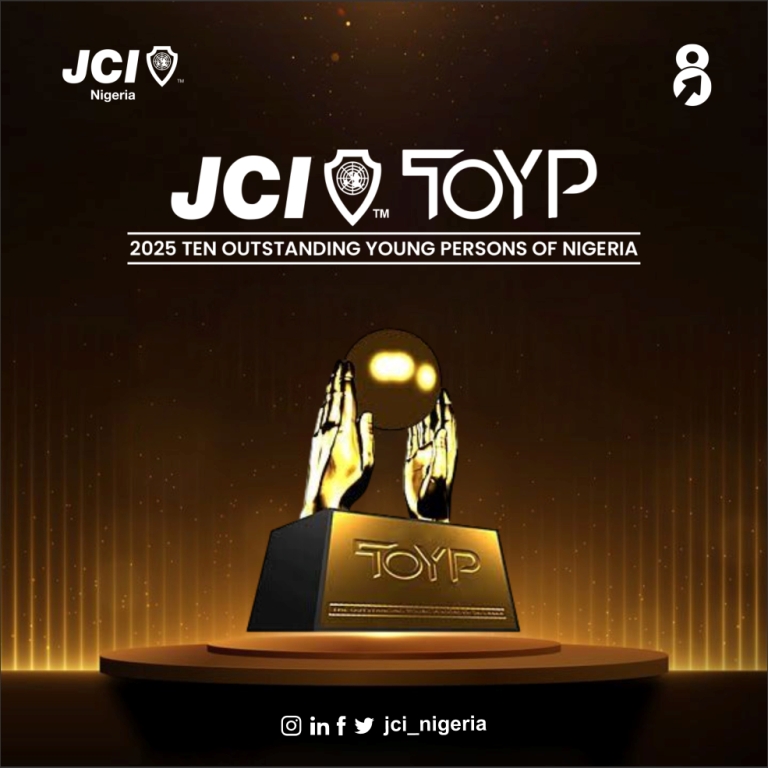
By Modupe Gbadeyanka
The race for the 2025 Junior Chamber International (JCI) Ten Outstanding Young Persons of Nigeria (TOYP) programme has commenced with the opening of voting at 6.30 pm WAT on Monday, July 28, 2025.
A statement from the organisers disclosed that voting is expected to close at 11.59 pm WAT on August 6, 2025, with the unveiling of the nominees slated for Saturday, August 16, 2025, at Eko Hotel and Suites, Lagos, in commemoration of the United Nations International Youth Day.
The top 10 persons will be chosen from the 30 nominees shortlisted by KPMG Nigeria, the official audit partner for the 2025 JCI TOYP Program, from the top 50 nominees earlier evaluated by an independent panel of judges between March and April 2025.
These nominees had been selected by the jury from a total of 638 entries received nationwide during the nomination period, which ran between January and February 2025.
This programme is hosted annually by JCI Nigeria to celebrate young people (between the ages of 18 and 40) who have demonstrated remarkable leadership and significant contributions in their respective fields and communities.
For this year’s edition, its 41st, the top 10 will be at the 2025 JCI World Congress scheduled for Tunis in November.
Seven notable Nigerians have been honoured at the global stage – namely Ray Ekpu (1988), Dr. Modupe Osho (1996), Dr. Ola Orekunrin (2013), Imrana Buba (2017), Adepeju Opeyemi Jaiyeoba (2017), Jacinta Uramah (2018), and Temie Giwa-Tubosun (2021) –
The chairperson of the 2025 JCI TOYP Committee, Ms Yetunde Oyeyipo, encouraged members of the public to participate as the public voting phase plays a critical role in determining the final honourees because 40 per cent will be allocated to them and 60 per cent to the judges.
Speaking on the significance of this programme, the 2025 President of JCI Nigeria, Ms Oluwatoyin Atanda, said, “These exceptional individuals are pioneering change, pushing boundaries, and championing innovation across various sectors in Nigeria. They truly embody leadership, service, and commitment to national development. This year’s Nominees are not just dreamers, they are doers making tangible impact.”
The 2025 Top 30 Nominees are: Aramide Kayode, Motunrayo Sanyaolu, Chuks Ekwueme, Ifedayo Durosimi-Etti, Phoebe Dami-Asolo, Tosin Olaseinde, Prada Uzodinma, Aisha Abdullahi Adamu, Titilola Vivour-Adeniyi, Morenike Olusanya, Emmanuel Oyeleke, Tolani Ali, Tobilola Ajayi, David Obianyor, Emokiniovo Dave-Akpedeye and Praise Akobo. Others are Ifeoluwa Dare-Johnson, Bukola Bolarinwa, Jumoke Dada, Toyeeb Ajayi, Adaeze Akpagbula, David Onilude, Elizabeth Oshoba, Abisoye Ajayi-Akinfolarin, Oyinkansola Fawehinmi, Joseph Onele, Tomilola Majekodunmi, Oluwatobi Ajayi, Chinwe Okoli and Fisayo Fosudo.
These 30 nominees are in 10 categories, namely: Academic Leadership and/or Accomplishment; Business, Economic and/or Entrepreneurship Accomplishment; Contribution to Children, World Peace and/or Human Rights; Cultural Achievements; Humanitarian and/or Voluntary Leadership; Medical Innovation; Moral and/or Environmental Leadership; Personal Improvement and/or Accomplishment; Political, Legal and/or Government Affairs; and Scientific and/or Technological Development. Hence, 1 Nominee will emerge as the most outstanding person in each of these categories.
General
Nigeria to Intensify Use of Hybrid Electricity Models—REA CEO
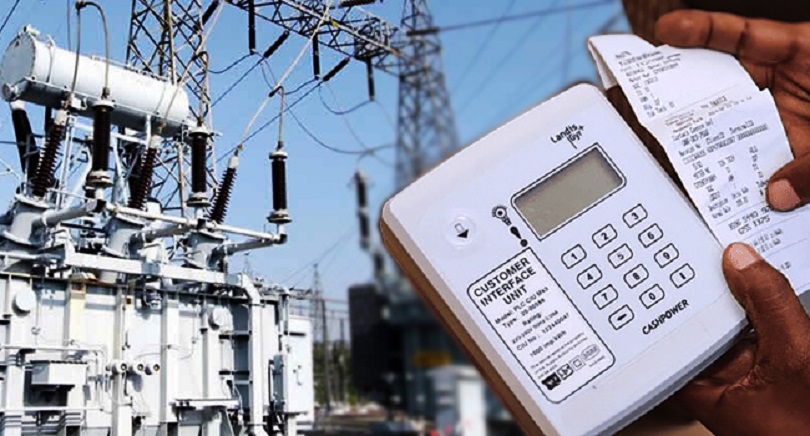
By Adedapo Adesanya
The chief executive of Rural Electrification Agency (REA), Mr Abba Aliyu, has said there will be intensification of efforts that will enable hybrid models and gas-powered mini-grids to electrify Nigeria.
Speaking at a recent conference in Lagos, he described the Electricity Act as a major enabler for hybrid models and gas-powered mini-grids.
Mr Aliyu, represented by Japheth Ailenataman, explained that the Act emphasizes technology neutrality and called for greater collaboration and stakeholders engagement.
According to him, gas qualifies under the Act as a cleaner for side-fuel, and should be considered to be acceptable in meeting Nigeria’s energy access and transition goals.
“REA hybrid mini-grid project design supports off-grid gas-powered systems in other sub-areas where such solutions are technically and economically feasible.
“The Electricity Act grants states the right to regulate the electricity market within their jurisdiction for off-grid and embedded generation. This supports localized generation solutions in gas-powered mini-grids in other sub-and non-sub-rural communities. These reforms lower the barrier for independent power producers and mini-grid developers, including those utilizing gas technology.
“Decentralization by the Electricity Act means REA must now actively engage with state electricity regulators as well as these schools where applicable, especially on licensing tariffs, safety standards, and gas-based systems and interconnected mini-grids,”
He said these opportunities are really great for Nigeria to meet its energy transition goals.
“Solar gas-based system integration into REA directs the energy education projects in their programs under embedded or hybrid system justification offer great opportunity for integrating Nigeria gas potential for RYA strategic intervention.
“This integration offers a lot of opportunity, and I see from the keynotes reducing emission is also one of the advantages. It also helps to provide a reliable bank of power, enables productive use of electricity, and enhances private sector participation. The way forward is that RYA has already demonstrated a solar hybrid mini-grid in an economic hub within the under-south area as a way forward.
“When we see some of our projects in the selected Nigerian universities, those mega-projects like University of Medjugorje, we have about 12 megawatts. It’s an embedded system. So these are opportunities for solar gas initiatives in bridging the gap that we have in the electricity sector,” he said.
He said looking forward, Nigeria will be looking at gas supply with comparative and economic reflective pricing that can enhance heat integration.
“That is a programme that the federal government has just introduced to power public institutions through embedded solar hybrid mini-grid systems. It encourages states to align with RYA activity in our energy transition priorities.”
“REA affirms and commits to ensuring that rural electrification contributes to Nigeria’s energy transition plan and meets zero goal. We also commit to decentralizing energy source for the electrification model, which includes solar gas hybrid mini-grid,” he said.
-

 Feature/OPED5 years ago
Feature/OPED5 years agoDavos was Different this year
-
Travel/Tourism9 years ago
Lagos Seals Western Lodge Hotel In Ikorodu
-

 Showbiz3 years ago
Showbiz3 years agoEstranged Lover Releases Videos of Empress Njamah Bathing
-

 Banking7 years ago
Banking7 years agoSort Codes of GTBank Branches in Nigeria
-

 Economy2 years ago
Economy2 years agoSubsidy Removal: CNG at N130 Per Litre Cheaper Than Petrol—IPMAN
-

 Banking2 years ago
Banking2 years agoFirst Bank Announces Planned Downtime
-

 Sports2 years ago
Sports2 years agoHighest Paid Nigerian Footballer – How Much Do Nigerian Footballers Earn
-

 Technology5 years ago
Technology5 years agoHow To Link Your MTN, Airtel, Glo, 9mobile Lines to NIN



